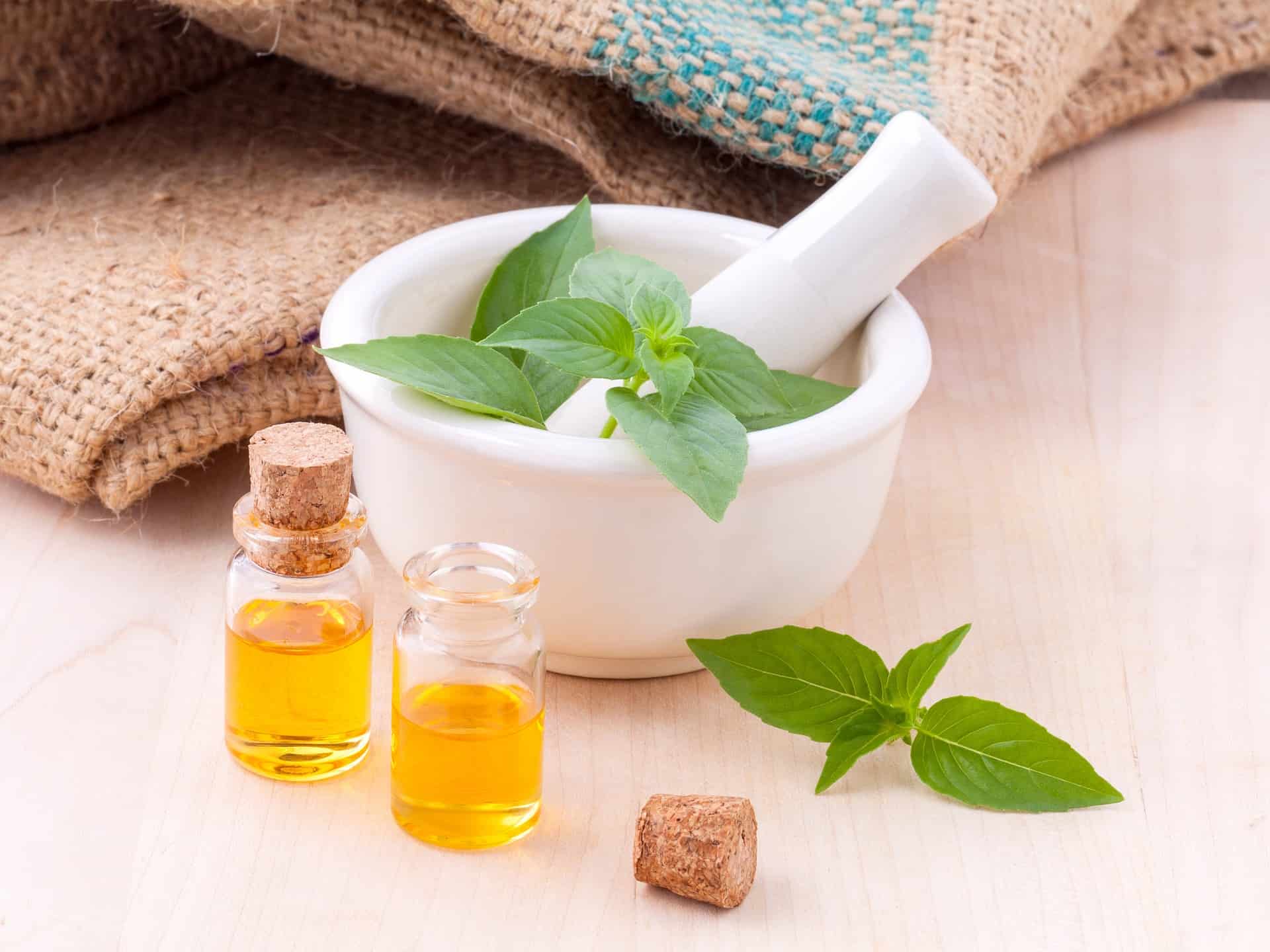Your Kitchen’s Beauty Corner: Step into your kitchen and discover a treasure trove of home remedies for beautiful skin. Delve into the wonders of honey, aloe vera, lemon juice, oatmeal, green tea, and coconut oil, and learn how these readily available ingredients can revitalize your skin. Embrace the power of natural skincare and achieve a glowing complexion without stepping foot outside your home.
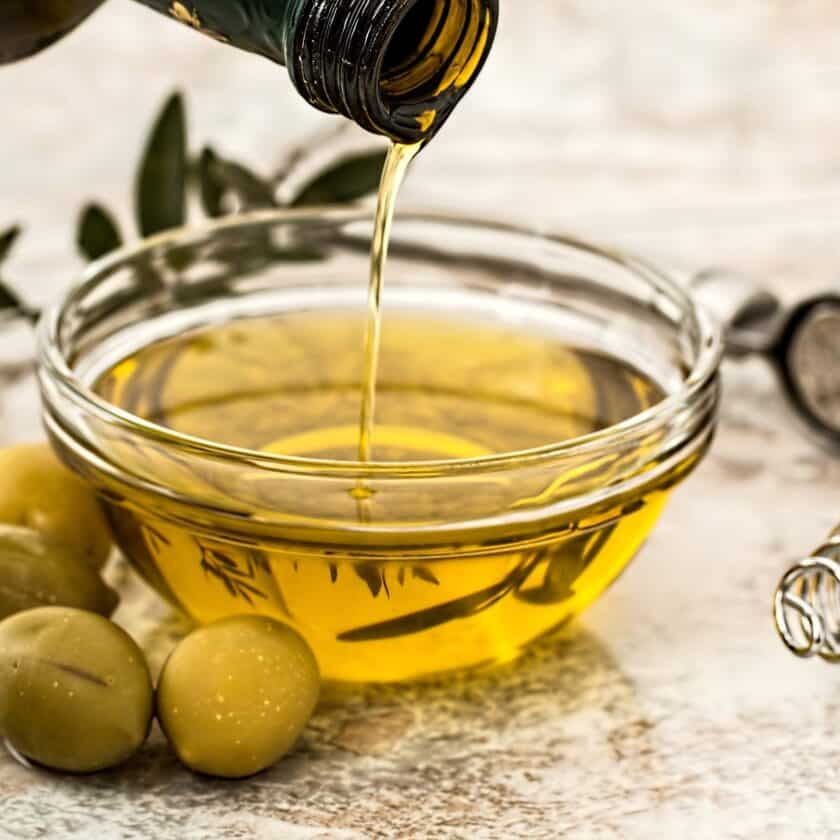
Understanding Healthy Skin
Before delving into home remedies, it’s important to understand the key elements that contribute to healthy skin. Our skin is the body’s largest organ and serves as a protective barrier against external factors. here are some key factors to bear in mind:
Proper Hydration
Drinking an adequate amount of water helps maintain skin hydration and supports overall skin health.
Balanced Diet
A nutritious diet rich in fruits, vegetables, whole grains, and lean proteins provides essential vitamins, minerals, and antioxidants that nourish the skin from within.
Sun Protection
Regularly applying sunscreen and limiting sun exposure can prevent premature aging, and sunburns, and reduce the risk of skin cancer.
Cleansing and Moisturizing
Establishing a consistent skincare routine that includes gentle cleansing and moisturizing helps remove impurities, maintain skin’s moisture balance, and promote a healthy complexion.
Home Remedies for Healthy Skin
Now, let’s explore a range of effective and natural home remedies that can promote healthy, radiant skin:
Honey
Honey is a versatile ingredient with antimicrobial and moisturizing properties. Apply raw honey directly to the skin or mix it with other ingredients like yogurt or mashed bananas for nourishing face masks. Honey helps hydrate the skin, soothe irritation, and promote a youthful glow.
Aloe Vera
Besides its soothing and revitalizing qualities, aloe vera gel provides various other benefits too. Extract the gel from an aloe vera leaf and apply it to the skin to alleviate sunburn, reduce inflammation, and promote wound healing. Regular use of aloe vera can also help fade scars and improve overall skin texture. Lemon Juice
Lemon juice, rich in vitamin C and citric acid, acts as a natural astringent and skin brightener. Dilute freshly squeezed lemon juice with equal parts water and apply it to the skin to lighten dark spots, even out skin tone, and reduce the appearance of acne scars. However, lemon juice may cause sensitivity in some individuals, so it’s important to perform a patch test before applying it to the face.
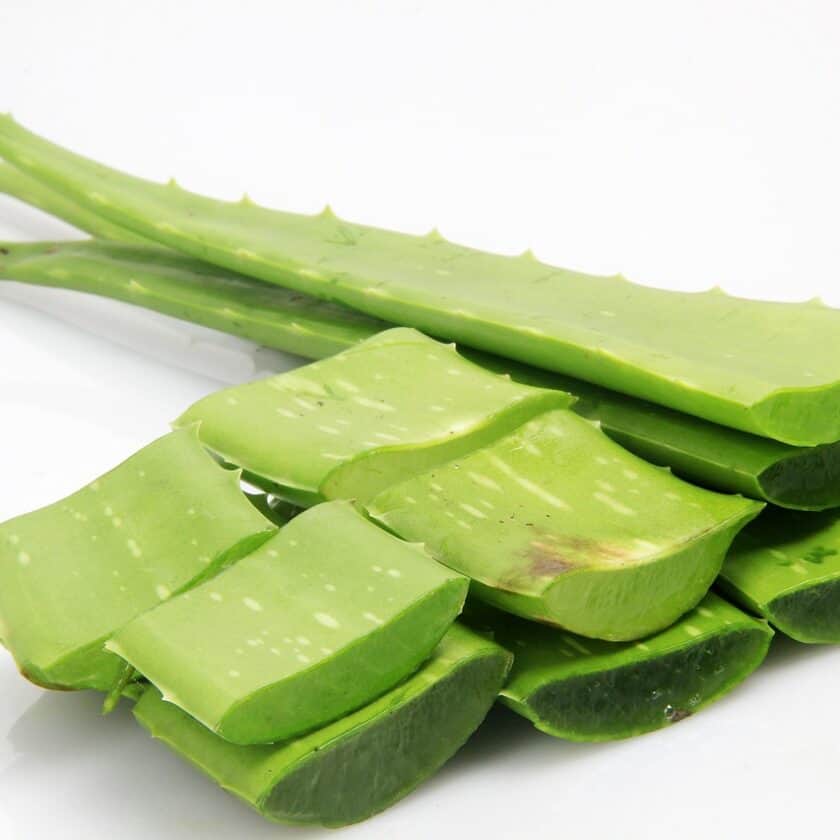
Oatmeal
Oatmeal is an excellent ingredient for gentle exfoliation and skin soothing. Grind oatmeal into a fine powder and mix it with warm water to create a paste. Apply the paste to the skin to calm irritation, relieve itchiness, and gently exfoliate to reveal a smoother complexion. Oatmeal also has anti-inflammatory properties that can benefit sensitive or acne-prone skin.
Green Tea
Green tea is rich in antioxidants that protect the skin from free radical damage and inflammation. Brew a cup of green tea, allow it to cool, and use it as a facial toner or face mist. The antioxidants in green tea help reduce redness, promote a healthy glow, and provide anti-aging benefits. Green tea can also be used as a compress to soothe tired or puffy eyes.
Coconut Oil
Coconut oil is a versatile ingredient that offers exceptional benefits for the skin. Its natural moisturizing properties make it an excellent hydrating agent. Gently massage a small amount of coconut oil onto your face and body, paying attention to dry areas. It can also be used as a makeup remover, lip balm, or hair conditioner. Coconut oil leaves the skin feeling soft, supple, and nourished.
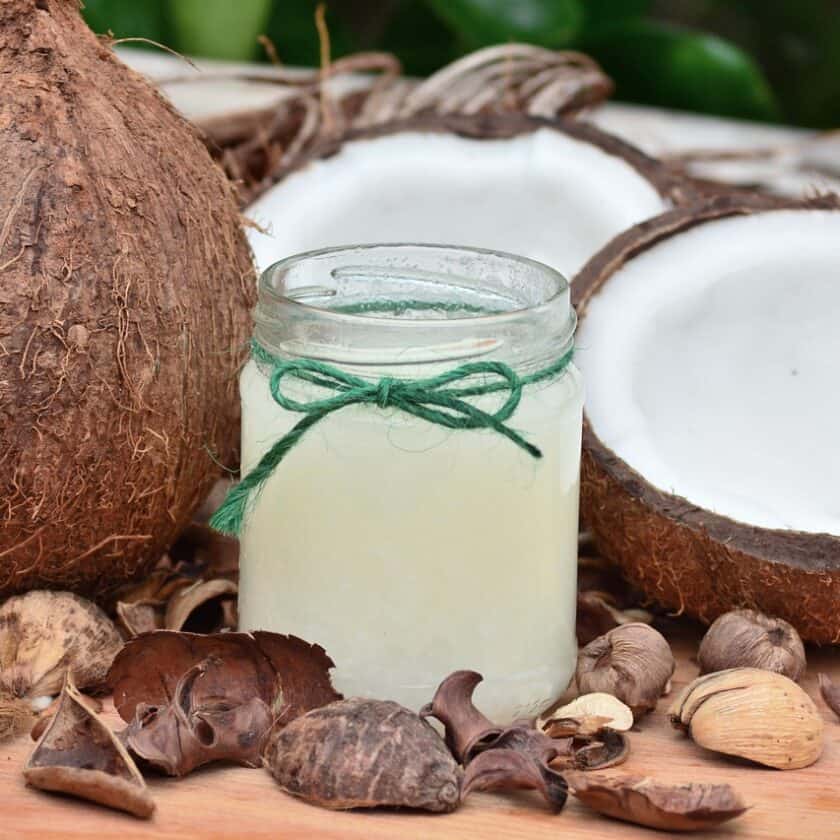
Additional Beauty Secrets or home remedies for a healthy and radiant skin
Baking Soda for Skin
Baking soda, also known as sodium bicarbonate, is a versatile ingredient that can offer several benefits for achieving and maintaining healthy skin.
Here are the four ways in which baking soda helps promote skin health:
1. Exfoliation
Baking soda functions as a mild exfoliator, aiding in the elimination of dead skin cells and the unclogging of pores.Its fine particles provide a mild abrasive texture that aids in sloughing off dull and dry skin, revealing a smoother complexion.
2. pH Balancing
Baking soda has alkaline properties, which can help balance the skin’s pH level. An imbalanced pH can disrupt the skin’s natural protective barrier, leading to various skin issues such as dryness, sensitivity, and breakouts. Using baking soda in moderation can help restore the skin’s pH balance.
3. Anti-inflammatory properties
Baking soda possesses anti-inflammatory properties that can help calm and soothe skin irritation. It can be beneficial for conditions like sunburn, insect bites, and mild rashes. However, it’s important to note that baking soda may not be suitable for all skin types, especially if you have sensitive or compromised skin.
4. Acne treatment
Baking soda’s exfoliating and antibacterial properties make it a popular remedy for managing acne. It can help remove excess oil, dead skin cells, and impurities that contribute to acne formation. Baking soda can also help reduce the appearance of acne scars over time. However, it’s crucial to use baking soda with caution and in moderation, as excessive use or harsh scrubbing can disrupt the skin’s natural balance and cause further irritation.
How to use baking soda for healthy skin
When using baking soda as a skincare remedy, it’s important to remember the following guidelines:
Patch test:
- Before using baking soda on your face, perform a patch test on a small area of your skin to check for any adverse reactions or sensitivity.
- Gentle exfoliation: Mix a small amount of baking soda with water to create a paste with a smooth consistency. Distribute the paste onto the wet skin and gently rub it in circular motions, providing special attention to the regions that need to be exfoliated. rinse thoroughly with water and follow up with a gentle moisturizer.
- Spot treatment for acne: Create a paste using baking soda and water, apply it directly to the affected areas, and leave it on for a few minutes. Rinse off thoroughly and moisturize afterward. Avoid leaving baking soda on the skin for an extended period, as it may cause dryness and irritation.
- Frequency: Limit the use of baking soda to 1-2 times per week, as excessive or frequent use can disrupt the skin’s natural balance and lead to dryness or irritation.
- Discontinue use if irritation occurs: If you experience any adverse reactions or excessive dryness, discontinue the use of baking soda and consult a dermatologist.
It’s important to note that baking soda may not be suitable for everyone, particularly those with sensitive or reactive skin. If you have any underlying skin conditions or concerns, it’s best to consult a dermatologist before incorporating baking soda into your skincare routine.
Turmeric Powder for Skin
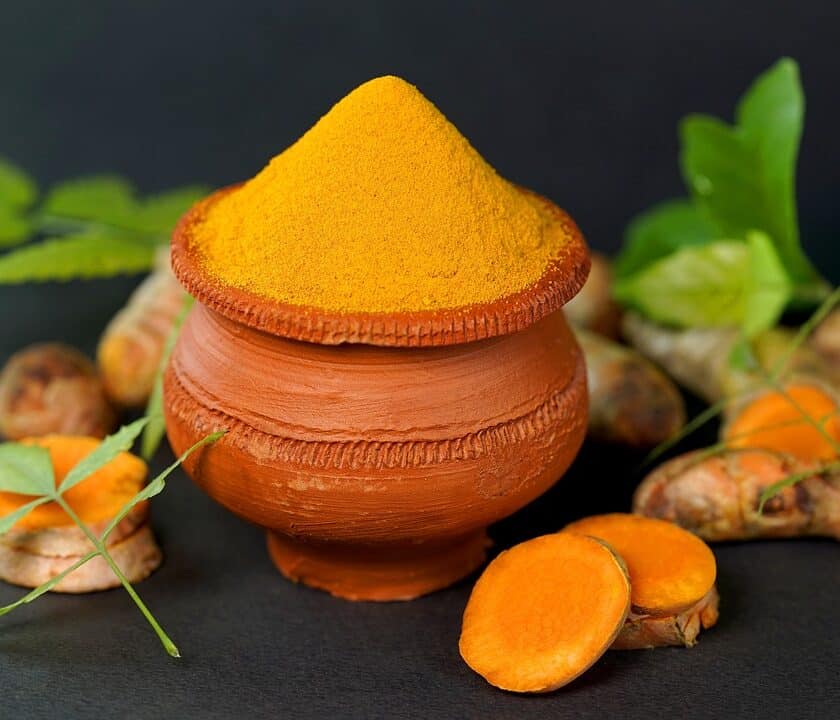
Turmeric powder, derived from the Curcuma longa plant, has been used for centuries in traditional medicine and skincare. It offers numerous benefits for achieving and maintaining healthy skin.
Here’s how turmeric powder helps promote skin health:
1. Anti-Inflammatory Properties:
Curcumin, a substance found in turmeric, has powerful anti-inflammatory properties.It can help calm and soothe inflammatory skin conditions such as acne, eczema, psoriasis, and rosacea.
2. Antioxidant Protection
Turmeric is rich in antioxidants that help neutralize free radicals, which are harmful molecules that contribute to skin damage and premature aging. Regular use of turmeric can help protect the skin from environmental stressors and promote a youthful appearance.
3. Brightening and Even Skin Tone
Turmeric has natural skin-lightening properties that can help reduce the appearance of dark spots, hyperpigmentation, and uneven skin tone. It inhibits the production of melanin, the pigment responsible for skin coloration, resulting in a brighter and more even complexion.
4. Acne Treatment
The anti-inflammatory and antimicrobial properties of turmeric make it effective in combating acne. It helps reduce redness, inflammation, and the formation of acne-causing bacteria Furthermore, turmeric possesses the capacity to control sebum production, which can effectively prevent the occurrence of clogged pores and breakouts.
5. Skin Healing
Turmeric promotes wound healing and tissue repair. Applying turmeric topically can aid in th Collagen production is stimulated by turmeric, a vital component for preserving the skin’s elasticity and firmness. healing of scars, wounds, and blemishes, resulting in a smoother complexion.
6. Gentle Exfoliation
- Turmeric acts as a natural exfoliate, gently removing dead skin cells and unclogging pores. This promotes a clearer complexion, minimizes the appearance of pores, and allows for better absorption of skincare products.
Tips for incorporating turmeric powder into your skincare routine for a healthier complexion:
To incorporate turmeric powder into your skincare routine, follow these guidelines:
Turmeric Face Mask
- Mix turmeric powder with other ingredients like yogurt, honey, milk, or aloe vera gel to create a paste. Avoid the eye area when applying the mask to cleansed skin.. Use caution, as turmeric can stain fabric and temporarily tint the skin. Allow it to remain on the skin for a duration of 10-15 minutes before rinsing it off using lukewarm water.
Spot Treatment
- Apply the paste directly to blemishes, scars, or areas of Spot Therapy: Make a paste by mixing a little bit of ground turmeric with water Apply the paste directly to blemishes, scars, or areas of hyperpigmentation. After fifteen to twenty minutes are up, wash it off
Golden Milk
- Consuming turmeric internally can also benefit the skin. Prepare a warm drink called golden milk by mixing turmeric powder with milk (dairy or plant-based) and adding a pinch of black pepper to enhance curcumin absorption. Drink it before bed to enjoy its antioxidant and anti-inflammatory effects.
Precautions
- Turmeric may temporarily stain the skin, especially if used in higher concentrations or with other staining ingredients like saffron. In certain individuals, it has the potential to elicit allergic reactions. Perform a patch test before using turmeric topically, and if any irritation or adverse reactions occur, discontinue use and consult a dermatologist.
Incorporating turmeric powder into your skincare routine can help promote healthy, vibrant skin. Nevertheless, it is crucial to acknowledge that outcomes may differ for each individual. If you have any underlying skin conditions or concerns, it’s best to consult a dermatologist for personalized advice and recommendations.
Multani mitti for skin
Natural clay called Multani Mitti, often referred to as Fuller’s Earth has been utilized for thousands of years in skincare regimens. It offers several benefits for achieving and maintaining healthy skin.
Here’s how Multani Mitti helps promote skin health:
1. Oil Absorption
- Multani mitti has excellent oil-absorbing properties, making it beneficial for oily and acne-prone skin. It helps draw out excess sebum and unclog pores, reducing the occurrence of breakouts and controlling the shine of the skin.
2. Deep Cleansing
- Multani mitti acts as a natural cleanser and detoxifier for the skin. Its fine particles can effectively remove dirt, impurities, and dead skin cells, leaving the skin clean, fresh, and rejuvenated.
3. Exfoliation
- The texture of Multani mitti allows it to gently exfoliate the skin, promoting the removal of dead skin cells and revealing a smoother complexion. Regular exfoliation with Multani mitti can improve skin texture, minimize the appearance of pores, and promote a healthy glow.
4. Soothing and Cooling
- Multani mitti has a cooling effect on the skin, making it ideal for soothing and calming irritated or inflamed skin. It can help alleviate sunburn, redness, and itchiness.
5. Skin Brightening
- Multani mitti has natural skin lightening properties that can help improve skin tone and reduce the appearance of dark spots, blemishes, and pigmentation. Regular use of Multani mitti can result in a brighter and more even complexion.
6. Natural Toning
- Multani mitti acts as a natural toner, tightening the skin and minimizing the appearance of pores. It helps improve skin elasticity and firmness, giving a smoother and more youthful appearance. For good skin, apply Multani mitti as follows
For good skin, apply Multani mitti as follows
Face Mask
- Mix Multani mitti with water or other suitable ingredients like rose water, aloe vera gel, or yogurt to form a smooth paste. Apply the mask evenly to cleansed skin and leave it on for 10-15 minutes, or until it dries completely. To remove the mask, gently massage the skin in circular motions while rinsing it off with lukewarm water.
Spot Treatment
- For localized skin concerns like acne or dark spots, prepare a paste of Multani mitti with water and apply it directly to the affected area. Leave it to sit for 15 minutes before removing it.
Frequency
- Use Multani mitti masks 1-2 times a week or as needed, depending on your skin type and sensitivity. Avoid overuse, as it can lead to dryness.
Moisturize
- After using Multani mitti, follow up with a moisturizer suitable for your skin type to replenish hydration.
Note: It’s important to perform a patch test before using Multani mitti, especially if you have sensitive skin or are prone to allergies. Stop using immediately and see a dermatologist if any itchiness or discomfort develops.
Incorporating Multani mitti into your skincare routine can contribute to healthier and more radiant skin. However, for complex skin conditions or concerns, it’s always advisable to consult a dermatologist for personalized advice and recommendations.

